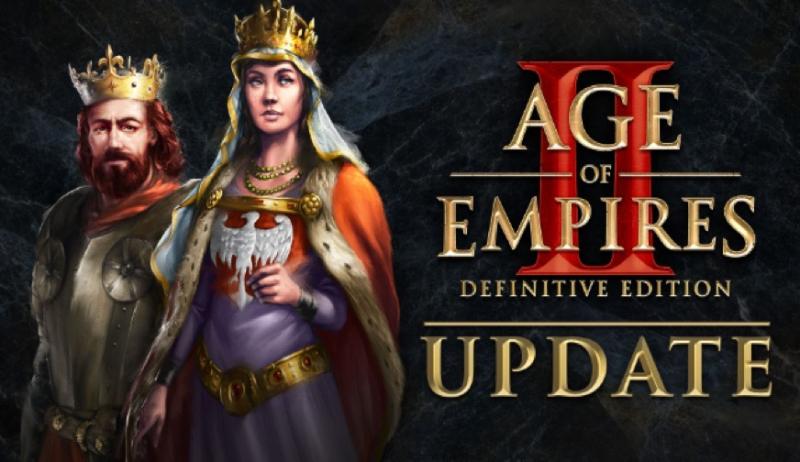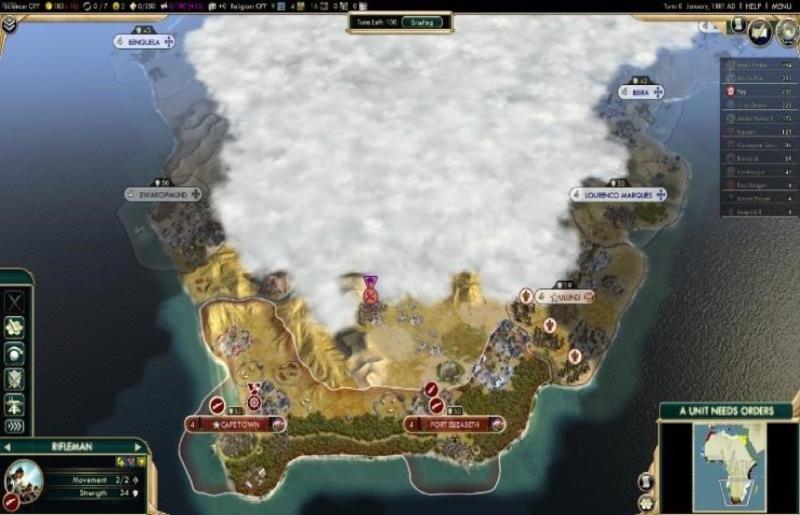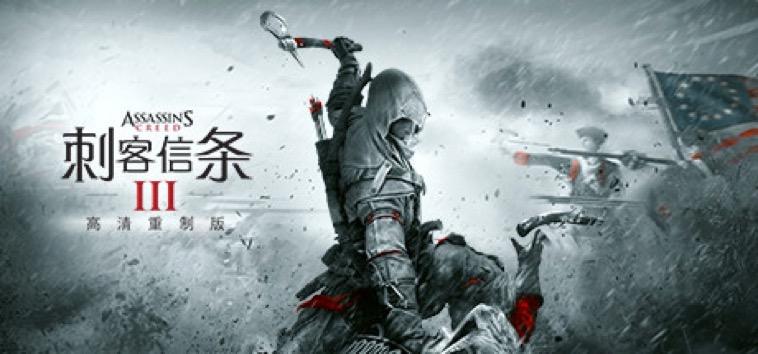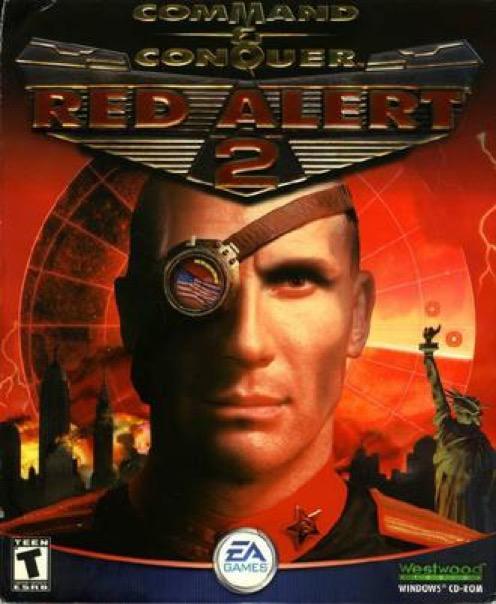From Age of Empires to Assassin’s Creed: "Colonial Discourse" in Video Games
Have you ever heard of a video game being boycotted for containing too much "colonial" leanings?
Six Days of Fallujah, a military shooter game that hit the news last year, is set in the Iraq War’s "Battle of Fallujah," in which American and Iraqi government forces seized Fallujah, where anti-American forces were entrenched. The game has faced a backlash from the gaming industry and gamers because of the contentious nature of the Iraq War. In 2020 and 2021, the game was said to be on the verge of release, but the ensuing backlash has forced it to keep delaying progress, and the game is now said to be released by the end of this year.

A game scene in Six Days of Fallujah. Source: CNN.
Subsequent reports by CNN and other media outlets revealed the psychological motivations of these "game boycotters." On the one hand, the battle is a "painful memory" for many Iraqis, who find it difficult to accept that people face this history in a "game-playing" way, and some people worry about whether the game will reinforce the stereotype that "Arabs are equal to terrorists." On the other hand, more people are concerned about the imperialist and colonial overtones contained in the game. During the battle, the US military once regarded the residents of the city as potential terrorists and adopted a controversial combat policy, causing a large number of civilian casualties. But the game’s release statement said that "this generation has shown remarkable sacrifice and courage in Iraq."
In the face of the bombardment of public opinion, the game publisher had to make a statement, claiming that they interviewed a large number of Iraqis during the production process, and that players could also play Iraqi civilians in the game. Therefore, to some extent, the game producers are trying to break the "imperialist narrative" that Americans are accustomed to, and thus "let the Iraqis speak for themselves."
Today, when colonialism in the real world has been rejected and rejected, the narrative of "imperialism" and "colonialism" seems to have been "reborn" in the virtual world. In the following article, the author attempts to view the "colonial discourse" in video games from the perspective of postcolonialism. "Postcolonialism" is an academic trend that emerged in the 1970s, focusing on "colonial discourse", the cultural representation of the West against the East, and cultural resistance to "colonial discourse". From this, the following article analyzes how "colonial discourse" is presented in video games, and shows how games may be a vehicle for resisting "colonial discourse" and thus realizing the vision of cultural equality.
"Colonial Discourse" in Video Games
"Colonial exploration" and "imperial expansion" are enduring themes in video games, many of which are set in real-life colonial history. Take, for example, games that are familiar to some domestic players. "Age of Empires 3" expansion, "Age of Empires III: WarChiefs," includes Native Americans in the game, and the plot revolves around the experiences of the Iroquois tribe during the Revolutionary War and after the founding of the United States. "Assassin’s Creed III" sets the protagonist as a hybrid of European and Native American descent, and its main story is also related to the conflict between the Native Americans and the colonists. Moreover, in games like Sid Meier’s Civilization, where players can "intervene" in the course of history from a broader perspective, colonial expansion also accounts for a considerable proportion of the game.
Themes related to "colonial exploration" also appear in a series of games that are not set in the context of colonial history. For example, in many "interstellar exploration" games, players are engaged in "colonial activities" – collecting resources, building buildings, exploring the unknown, and battling "extraterrestrial people"; while games such as "BioShock Infinite" (BioShock Infinite), although adopting a partially overhead worldview, are also closely related to colonialism and its consequences; even in "Red Alert", which is set in the context of the Cold War and hosts a considerable part of the player’s childhood, we can see the construction of the former "metropolis" against the former "colonial countries". In the game, France, Germany, the Soviet Union, and Russia all have their own high-tech special arms, but in the third world, Libya, Cuba, and Iraq, their special arms are set to self-destruct trucks, terrorists (whose function is also self-destruct), and radiation, respectively Engineer (provides range radiation damage regardless of friend or foe).

The game screen of the game "Radiant Star" with the theme of colonizing Mars.
Of course, the background of the relevant theme does not mean that the game is directly dominated by the "colonial discourse". To judge the extent to which the "colonial discourse" affects the game, it needs to be considered in more detail. And this consideration mainly starts from two levels: the first is the "systematic element" of the game, which refers to the narrative background of the game, and also stipulates the basic goals, operation methods and strategic choices of the player in the game. In other words, the systematic element determines how the player exercises his initiative; on the other hand, it is the "reproducibility element" of the game, which is mainly related to audio-visual expression. By examining how the game presents the colonizer, the colonizer, and the colonized at these two levels, one can determine to what extent the game contains "colonial discourse."
Regarding the "reproducibility element," most current games present the appearance of different civilizations in differentiated audio-visual. For example, even in the rather old Age of Empires 2, the buildings of various ethnic groups are significantly different, and when clicking on the units of each ethnic group, they can also speak in their own language. In fact, the most criticized at present is often the "systemic element" of the game:
For example, in the case of Civilization V, the scholar Dom Ford argues that many of its "systemic elements" are governed by "colonial discourse," which can generally be defined as a view of colonization and colonization that is centered on the colonizer’s position and worldview. First, Ford argues that Civilization V’s technology tree is a manifestation of Western-centrism: "The technology tree presents a homogeneous timeline of technological progress." All civilizations – whether Zulu, Roman, or Korean – climb the same tree of technology… and the stages of the tree of technology reinforce a Eurocentric perspective: the Classical, the Middle Ages, the Renaissance, the Industrial Age, the Atomic, and the Information Age… When the tree of technology is constructed in this linear fashion, it does not provide the player’s civilization with a route to technological progress that is unique to their society… In other words, in Civilization V, no matter what civilization, its goal of technological progress is to achieve what the real United States achieved in the Cold War. "

Domestic players are familiar with the "Age of Empires 2" game poster.
In short, on the one hand, the technology tree setting of the game is stretched along a homogeneous trajectory, and this trajectory represents the development path of Western civilization, and places its achievements at the top of the development path; secondly, the historical installment of the game adopts the division method that Westerners are accustomed to, and then integrates the historical evolution of various ethnic groups under the Western time and space view.
Second, Ford considers Civilization V to be a "4X" (eXplore, eXpand, eXploit, eXterminate) game. "Exploration" behavior is the basic operation in the game, in other words, the player needs to send explorers to clear the "fog of war" and enter the unknown map plate. However, the "exploration" behavior here is neither an exploration aimed at appreciating natural landscapes nor an exploration aimed at communicating with heterogeneous civilizations. It is "finding land to expand, resources to develop, and opponents to destroy." In fact, this kind of exploration is precisely the logic of colonization activities. Therefore, regardless of which civilization the player chooses, and regardless of whether these civilizations have played a role in history as colonizers or colonized, they are asked to take the role of colonizers and operate according to the colonial logic. In addition, although the game sets up mechanics related to "rebellion" and "uprising", in general, the indigenous population is still portrayed as a series of "numerical" and "objects" that lack agency.

Fog of War in the game. Image source: gamestudies forum
Of course, the analysis from a postcolonial perspective has also encountered certain refutations. If some scholars point out that the achievements of Western civilization today represent the highest stage of technological development, it is a fact, and one cannot ask a game with a historical background to envision a technological development process that is completely different from historical facts. But some game researchers, such as Adam Chapman of the University of Gothenburg, argue that even if the game is supported by "historical facts", the "narrative" constructed through historical facts still has a certain tendency, and what people need is to maintain a certain degree of vigilance and distance from this tendency in the process of enjoying the game.
Postcolonial reflection and cultural resistance in games
It is true that games are often infiltrated by "colonial discourse". However, games can also play a role as elements of reflection and deconstruction of "colonial discourse" at the same time. If the main way in which games embody "colonial discourse" is to conceive the world view of the colonizer from the position that the colonizer is accustomed to, and form a series of constructions of colonial activities and the image of the colonized, then games can also deconstruct "colonial discourse" from the above-mentioned ways, which can reveal the absurdity of colonial logic and present the image of the colonized in a different way.
For example, Resident Evil: Infinity is a game that partly deconstructs and critiques the logic of colonization. The starting point of the game’s plot is that the protagonist Booker travels to the fictional floating city of "Columbia" to rescue a woman named Elizabeth. Columbia, the city in the sky, is ostensibly a "utopian" city of wonders, full of grandeur and prosperity. However, as players follow Booker deeper into the city, they will discover the colonialist and racist base colors in it. The most ironic scene is that Booker discovers in the Hall of Martyrs in Colombia that the 1890 "Battle of Wounded Knee Creek" (aka the Wounded Knee Creek Massacre) was a military operation by the US military against indigenous tribes. The slaughter of a large number of Indians, including women and children, in battle is considered one of the city’s most heroic histories. In the exhibition, Native Americans are depicted as savage invaders – painted crimson, ambushed in bushes, and captured a white woman; and the Colombian army bravely defeated them. In addition, players can also see the phenomenon of intermarriage in the game – people try to execute a couple from different races; and the situation of apartheid – on the coast of Colombia, players see people of color serving as servants of whites, and the bathroom is also marked with "colored and Irish restrooms".

People of color undertake labor that is considered inferior. Source: interamerica.de
In the course of the game, Colombia’s ties to the United States are also revealed. Colombia was funded by the United States Congress but eventually became independent, becoming a floating "utopian island". As Stefan Schubert, a scholar at the University of Leipzig, put it: "This city is another version of America, and behind all the exaggerated elements, this city actually points to the United States that was swept by high patriotism and nationalist fervor at the turn of the 19th and 20th centuries. Colombia is revealed as a society that fanatically discriminates, represses and oppresses minorities, and this is closely related to the history of the United States’ involvement in imperialism and colonialism."
In particular, Mr. Schubert noted that the game’s "reproducibility element" also serves the postcolonial reflections in the background narrative. The game’s graphics are bright and bright when the player first arrives in Colombia, but darkened and muted in scenes where people of color are forced into menial jobs. Meanwhile, if the player pays close attention to his surroundings, one can hear people whispering on the streets, some of whom seem to question the contempt for minorities, but people close to him immediately remind him to "pay attention to such remarks."

Scenes seen in Colombia for the first time. Source: interamerica.de
In addition to deconstructing the logic of colonization, more and more games began to pay attention to the different portrayals of "colonized". They were no longer simply expressed in numerical terms, nor simply played the role of "objects" that lacked agency, but were set as protagonists, allowing players to play their roles as their identities. As mentioned earlier, Age of Empires 3 provides a special plot campaign belonging to the indigenous forces, and Assassin’s Creed 3 also sets the characters played by players to be mixed race.
Of course, in the opinion of some scholars, this role transition is still "not complete enough." As in Age of Empires 3, the colonized are still required to act according to the "colonial logic"; as the cultural researcher Beth Dillon points out, even when playing Native Americans, players need to follow the "4X" principle to expand their horizons, collect resources, and ultimately eliminate opponents. In other words, they treat natural resources and opponents the same way as the colonists. "However, the indigenous people do not believe that we are dichotomous with the natural world, so we have obligations to nature. Of course, it’s hard to imagine that Age of Empires 3: The Chieftain has to include activities unique to the natives: such as replanting trees after felling, making herbs, etc. "
But it is undeniable that "success" in the game is more defined as "achievement" and "progress" under the colonial logic. A similar situation exists in the game design of Assassin’s Creed III, which is quoted in an article published in The Surging Idea Market (Cheng Xu: Game Theory, Book Review, Reappearance of Empires: A Guide to Colonies in Video Games): "The indigenous heroes in video games, as well as other historical elements constructed in games, suggest that the perspective of the game is based on the mainstream values of Westerners, and the core of Western individual heroism and other heroic actions is implanted in a man with the appearance of an indigenous person."

Assassin’s Creed III game poster.
In fact, the intervention of a postcolonial perspective is often not a "censorship" or even a "cancellation" of existing games. In many cases, this perspective has even opened up new inspiration for game design, which is not inconsistent with the improvement of game experience. Just imagine, if the game design can let each civilization act according to its own local logic, this setting may greatly expand the diversity of game experience; at the same time, players from different civilizations are also happy to see their own unique way of perceiving and understanding the world can be "revived" in the game, and show their own unique development path.
Video games: a vehicle for "cross-cultural dialogue"?
In the final analysis, the purpose of postcolonial reflection is to dismantle the one-way hegemony of "colonial discourse" and establish a "multi-part" cross-cultural hermeneutics. In a sense, resistance to "colonial discourse" can only be "thorough" on the basis of the formation of this model of cross-cultural dialogue. Otherwise, such "resistance" will always be limited, and, as described earlier, it is easy to be re-dominated by the mainstream "colonial discourse". Therefore, this kind of cross-cultural hermeneutics is both a vision of postcolonial reflection and a prerequisite for its effectiveness. And in this regard, video games can also contribute.
For example, in contrast to Age of Empires 3, Beth Dylan mentions in her article a game made by Pocketwatch Games: "Wildlife Tycoon: Venture Arctic." This game appears to have nothing to do with "colonization" or "empire" – in which the player’s goal is to build and maintain the functioning of an ecosystem, and to raise animals accordingly. However, Beth Dylan emphasizes that one can use this game to understand the Inuit view of time and space: rather than using the "mechanical time" that people are accustomed to, the game uses changes in the environment, the cycle of life and death, the change of natural objects such as the sun and the moon as a sign of time replacement. By contrast, in Age of Empires 3, where players play Native Americans using the same mechanical time as the colonists, Mr. Dylan tried to emphasize that games like "Arctic Adventures" constitute a possible vehicle for cross-cultural communication, revealing the non-uniqueness of "colonial discourse" and thus its very existence as a dissolution of "colonial discourse."

Arctic Adventure game poster.
Compared to literature or film and television, games are more prominent as "carnival text" and "open text". Games naturally require players to "complete" with the author; therefore, their essence is a "multi-part" and decentralized "ensemble", rather than a consistent intention of the author. For this reason, some scholars argue: "Video games, as a multi-media, allow players to create their own stories, so strategy games based on historical situations can effectively interpret historical events from a counterfactual perspective. Players can re-experience the situation in different ways, and can continuously learn from their own gaming experience. In the context of postcolonial history, video games involve fringe narratives that regulate historical discourse, contain hypothetical scenarios of counter-historical facts, and create opportunities to speak on behalf of small people submerged in history. "Indeed, it is in this multi-voice dialogue that even a work originally designed to be partly governed by" colonial discourse "can become a text of intercultural dialogue and interpretation in a constant" re-creation. "
For example, for many real-time strategy games, the unofficial mods made by many players embody the possibility of "dialogue" and "explanation". The original design of "Red Alert" was not friendly to "third world" countries. But in subsequent creations, many players contributed a large number of unofficial mods to "Red Alert", some of which even modified the official background narrative and created background music with the characteristics of their respective civilizations for different camps. It is not difficult to find that players’ understanding of the characteristics of their own culture runs through this re-creation, which in turn forms an effective complement to the official narrative and its "parallax view".

"Red Alert 2" game cover.
In fact, such a "dialogue" is more likely to succeed than a "dialogue" is generally understood to mean that people put forward certain propositions or claims from their own perspectives. In such a dialogue, when people put forward any claim, they have actually tacitly assumed that it is the most reasonable claim that can be made from their own perspective, so that the claim is regarded by the proponent as "completed". This is why when other interlocutors dispute or add to the claim, it means that the rationality of the claim is challenged, and there is a confrontation or tension with the proponent. However, precisely because the game is always an "unfinished" text, even the game’s creators will welcome and even invite players to "write their own story" in the game, so that the above-mentioned confrontation and tension can be alleviated, and the cross-cultural communication through the game can be carried out more smoothly. Therefore, the significance of the game for "post-colonization" is not only to "deconstruction" and "resistance", but also to provide a channel to distinguish between "confrontation" and "conflict", allowing people to use "cross-cultural hermeneutics" to get out of the cultural colonialism with one-way hegemony.
Finally, I would like to end with the words of Souvik Mukherjee, an Indian scholar and author of Videogames and Postcolonialism: Empire Plays Back: "In games dealing with colonialism, the video game medium simultaneously offers the possibility of slavery, resistance, elitism, and hegemony – the player’s understanding and experience of the post-colonial era." By intervening in the game through a post-colonial perspective, one can both see new paths out of colonization and hegemony, and can expect more possibilities that the game can generate by accommodating this perspective.
References:
[1]Iraq’s bloodiest battle will be a video game: ‘Six Days in Fallujah’ is an Arab murder simulator, critics say. Developers argue it teaches history, https://edition.cnn.com/2021/10/09/us/six-days-in-fallujah-iraq-video-game/index.html
[2] Ford, Dom. "’EXplore, EXpand, EXploit, EXterminate’: Affective Writing of Postcolonial History and Education in Civilization V." Game Studies, vol. 16, no. 2, Dec. gamestudies.org/1602/articles/ford.
[3] Dillon, Beth A. "Signifying the West: Colonialist Design in Age of Empires III: The WarChiefs." Eludamos, vol. 2, no. 1, 1, Feb. 2008, pp. 129-44. www.eludamos.org/index.php/eludamos/article/view/vol2no1-10/61. 141.
[4] Schubert, Stefan. "Columbian Nightmare: Narrative, History, and Nationalism in BioShock Infinite." FIAR: Forum for inter-American research, vol. 11, no. 2, Sep. 2018, p. 44-60. interamerica.de/volume-11-2/schubert/.
[5] Cheng Xu: Game Theory Book Review < unk > The Reappearance of Empires: A Guide to Colonies in Video Games https://mp.weixin.qq.com/s/aiCTD9PFNj3G4ofLE5dXqA
Author/Xie Tingyu
Edited by Lee Young-bak, Qing Qing Zi
Proofreading/Wang Xin